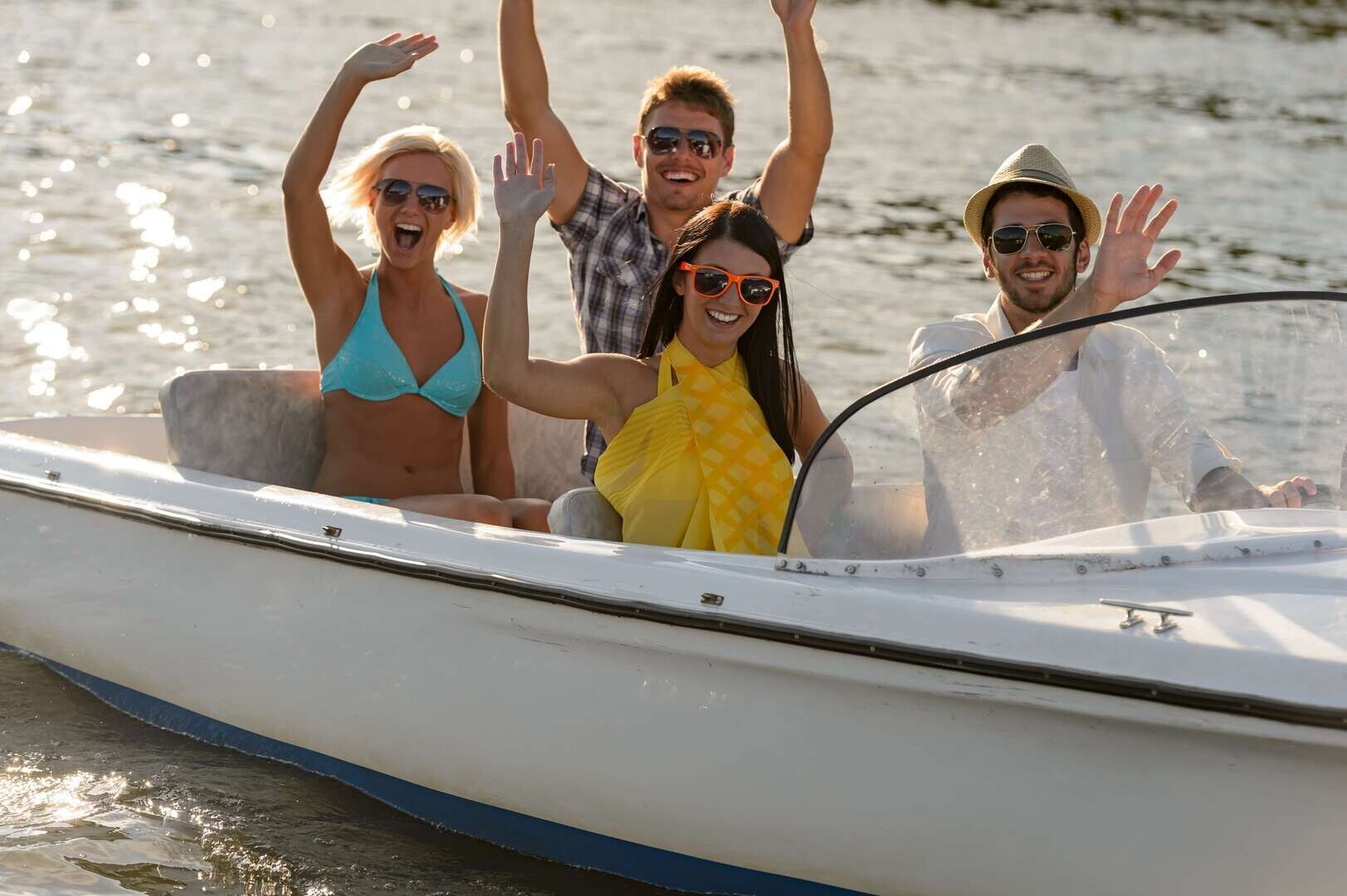How to Be Safe On Your Boat This Summer
Author: Auger Law | May 3rd, 2018
Boating is a wonderful pastime, whether it’s out on the ocean or on one of the Carolina’s many beautiful lakes. Spending a day on the water means abundant amounts of sunshine and having an opportunity to make memories. In most instances, an afternoon on the water ends without incident. However, there are some boaters that are not so fortunate. While boating can be an enjoyable event, it can also end in tragedy.
A boating accident can happen in a moment. You can control your own actions, but you certainly can’t control the actions of anyone else. When another boater chooses to operate their vessel recklessly or while under the influence of drugs or alcohol, they are putting everyone at risk.
Common Reasons for Boating Accidents
Like any type of accident, there are some causes that are more common than others when it comes to collisions on the water. Some of the most common causes for boating accidents include:
- Negligence on the part of the boat operator. The person operating the boat may not be paying an adequate amount of attention or make a mistake behind the wheel.
- Driving at speeds that are too high either for the craft or the conditions on the water. When a boat is being operated at high speeds, it takes longer to maneuver and longer to stop. This means that an operator has a shorter amount of time in which they must react to hazardous conditions.
- An inexperienced operator is also a danger on the water if they are operating a vessel that is too large for their skill level. A new operator, much like a new driver of a vehicle, doesn’t have the experience necessary to react appropriately to all dangerous situations.
Common Injuries Sustained in a Boating Accident
Some injuries are more likely sustained as the result of a boating accident than others due to the nature of the type of collision that occurs. Some of the most common injuries sustained include:
- Drowning
- Brain Injuries
- Spinal Cord Injuries
- Lacerations
- Electrical Shock or Electrocution
When a person is injured in a boating accident and the accident was caused by another person’s error or negligence, the victim has a legal right to be compensated for medical bills, lost wages and more. Of course, no one wants to be in this position, so knowing how to stay safe on your boat should be a top priority before you ever set sail.
Avoiding Boat Accidents
You can avoid some car accidents by knowing how to respond to hazards and by operating your vehicle in a safe way. The same is true of boat accidents. While you can’t prevent every accident from occurring, you can prevent some of the most common types of accidents if you understand a bit about safety before you head out on the water.
- Know Your Depth
If you let your boat run aground, you’re going to be a little red in the face. It’s a rookie mistake but one that can cause more than embarrassment. Always know the depth of the water you are in to avoid this common accident. While it doesn’t result in injury every time, running aground too quickly can easily cause you and your passengers to fall inside the cabin or be tossed overboard.
- Stay On the Boat
Falling overboard could cause little to no injury. It could also result in a fatality. Stay seated in the boat while it is moving, and be very careful walking about and sitting on the edge when the boat is still. The boat doesn’t have to be bumping across the waves for you to fall overboard. A simple slip in the cabin could send you careening out of the boat and into the water.
- Keep a Safe Speed
Speeding at night is a leading cause of accidents. Traveling at speeds that are too high for the conditions on the water is another. Slow it down. You aren’t in a race to get anywhere, and if you are in a hurry, remember that it is always better to arrive a little late than to have an accident. There is no reason to drive above the speed limit, and you should slow it down if the weather or conditions become unfavorable for your time on the water.
- Safety Gear
Too often, people don’t pay attention to the amount of safety gear they have stashed on their boat before they allow passengers into the cabin. You should have a properly-fitting life vest for each person on board as well as flares, an anchor, flashlights and a fire extinguisher. The more safety equipment you can store on board, the safer your passengers may be in the event of an accident.
- Pay Attention to the Weather
Don’t make the mistake of ignoring the weather before you leave the house. Keep an eye on weather reports a few days ahead of your planned outing, look at them again in the morning and then one more time as you board your vessel. The weather can change in an instant, as we all know. When it comes to your safety and the safety of your passengers, being unprepared for the weather is one of the biggest mistakes you can make.
While we certainly hope that every boating trip you take is enjoyable, we understand that accidents do happen. If you are injured in a boat accident in Charlotte or elsewhere in the Carolinas, reach out to our experienced team today. We are here for you and your family, and we are ready to fight for the compensation you have the legal right to. Call our office today to schedule a free case evaluation, and discover more about your options.















